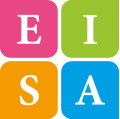EISA Governing Board Election 2023 – Voting is now open
We are pleased to announce that 11 EISA members have been shortlisted for election to the Governing Board:
- Prof Christian Bueger (University of Copenhagen, Denmark)
- Dr Nora El Qadim (University of Paris 8, France)
- Dr Beatrix Futak-Campbell (Leiden University, the Netherlands)
- Dr Magdalena Kozub-Karkut (Jagiellonian University, Poland)
- Dr Akos Kopper (ELTE University, Hungary)
- Dr Daniela Lai (Royal Holloway, University of London, UK)
- Dr Matthias Leese (ETH Zurich, Switzerland)
- Dr Revecca Pedi (University of Macedonia, Greece)
- Dr Polly Pallister-Wilkins (University of Amsterdam, the Netherlands)
- Dr Joana Ricarte (University of Coimbra, Portugal)
- Prof Ben Tonra (University College Dublin, Ireland)
EISA members can cast their vote by using their Membership account. The ballot will be open until 24 April 2023 13:00 CET. Members can vote for up to 7 candidates.
The new members will replace the current Governing Board members whose term will end in September 2023. The outgoing Governing Board members are
- Cemal Burak Tansel (President, 2021–2023)
- Gabi Schlag (Executive Secretary, 2021–2023)
- Juha A. Vuori (Treasurer)
- Marieke de Goode (Early Career Development)
- Vineet Thakur (PEC Liaison)
- Catherine Charrett (PEC Liaison & Academic Freedom Advocacy)
- Felix Berenskötter (Voices: The EISA Podcast)
The new members will join the remaining Governing Board members elected in 2021: Beste İşleyen (EWIS Liaison), Debbie Lisle (Publications), Sonia Lucarelli (Online Events & Exploratory Symposia), Thierry Balzacq (Awards), and Corina Lacatus (Communications).
The election results will be announced in the EISA newsletter and on our communication channels on 28 April 2023.
The newly elected members will be ratified by the EISA General Assembly at the Pan-European Conference on International Relations in 2023.
Candidate Statements
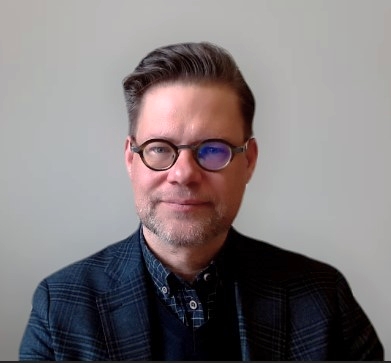
Christian Bueger
The EISA is the most important gathering of the European community of scholars in International Relations (IR). It offers a space and meeting formats for genuinely pushing research frontiers forward, facilitating a pluralistic understanding of what “IR” is and can do, and an important platform for discussing the ideas and results of early career scholars from across Europe and the world.
In the past I have supported the EISA as the local host of the EWIS events held in Cardiff in 2017, and as the convener of several sections on maritime security and international practices. I would be delighted to invest time and energy to continue to support EISA as a governing board member.
As a board member one of my goals will to be ensure that EISA’s core events are well organized and serve the diverse needs of the entire community, including early career scholars. This includes that the board and its decisions become more transparent. We also might want to reconsider the relation of EISA to international practice, and how the association can make a difference through critique of political discourses or in assisting in the protection of academic freedom. Overall, EISA will thrive if it continues to provide critical and innovative (and fun) discursive spaces for the diverse IR communities.
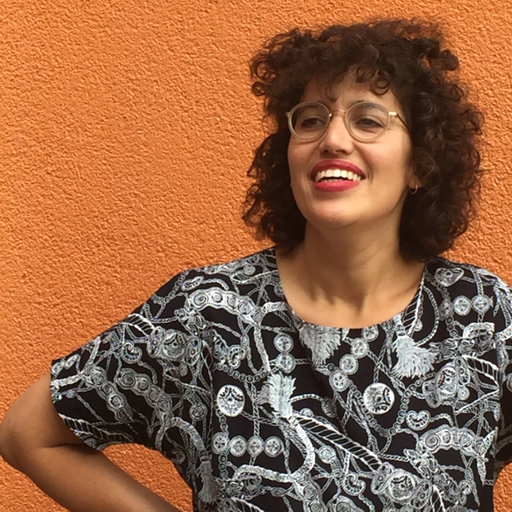
Nora El Qadim
Since my first engagement in 2016, I have found that EISA events offer a stimulating atmosphere which fosters exchanges between colleagues with diverse perspectives. I am keen to use my experience with organizational responsibilities to contribute to the development of this exceptional environment.
In particular, if elected, I would like to work with colleagues to further promote the reach and inclusivity of the EISA with concrete initiatives in line with the mobility fund or childcare services already offered at conferences. Second, I would like to work on expanding the EISA’s support of early-career researchers. I have noted that early-career colleagues are eager to connect and learn more about the oft-unspoken rules of academia. I believe that professional associations have an important role to play in supporting these ambitions and in creating spaces where one can discuss a variety of professional topics (e.g. writing and publication, the job market, mentorship) while at the same time reflecting on the rapid changes happening in these fields and on ways to adjust to them and to advance collective practices that work better for everyone. I would also work on including more discussions on teaching and pedagogy, both for supporting early career researchers and for everyone interested within the EISA.
Finally, by building on existing initiatives such as the EISA podcast Voices, I would like to expand our reflection on cross-disciplinary programs and on the variety of formats for academic discussions and exchanges.
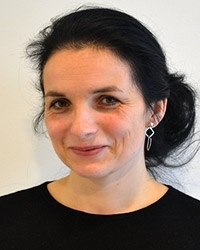
Beatrix Futak-Campbell
EISA has been a very important organization for my intellectual development for several years now. Since attending my first EISA exploratory workshop in Rapallo in 2016, I have connected with different groups of scholars at various EISA events.
I’ve also been an active member. I was Programme Chair of PEC with Dr Vineet Thakur for two years. Together we ran a successful online EISA-PEC during the pandemic in 2020 and 2021. I am also co-chair of a semi-standing section on Globalising IR with Prof Pınar Bilgin.
I am particularly keen on promoting diversity in intellectual thought as well as participation in EISA conferences. When I was the Programme Chair for EISA-PEC, Vineet and I paid particular attention to this. We invited Prof Sankaran Krishna to deliver the keynote lecture in 2020 and Dr Vandana Shiva in 2021. Through my research on Globalising IR which has direct links to the EISA semi-standing section as well as a new section within ISA, I am intellectually committed to pluralism, inclusion and diversity of knowledge.
Within EISA I would continue to maintain and build closer relationships with WISC. Offering joint panels and sections would help to increase diversity. I would also pay particular attention to junior and early career researchers to support their professional development and publication records. Closer cooperation with publishers through panels and workshops is one way to do this. As a recently appointed co-editor of International Studies Review, it is part of my mission to achieve this.
It would give me a great pleasure to serve EISA members and the organisation by joining the EISA Governing Board.
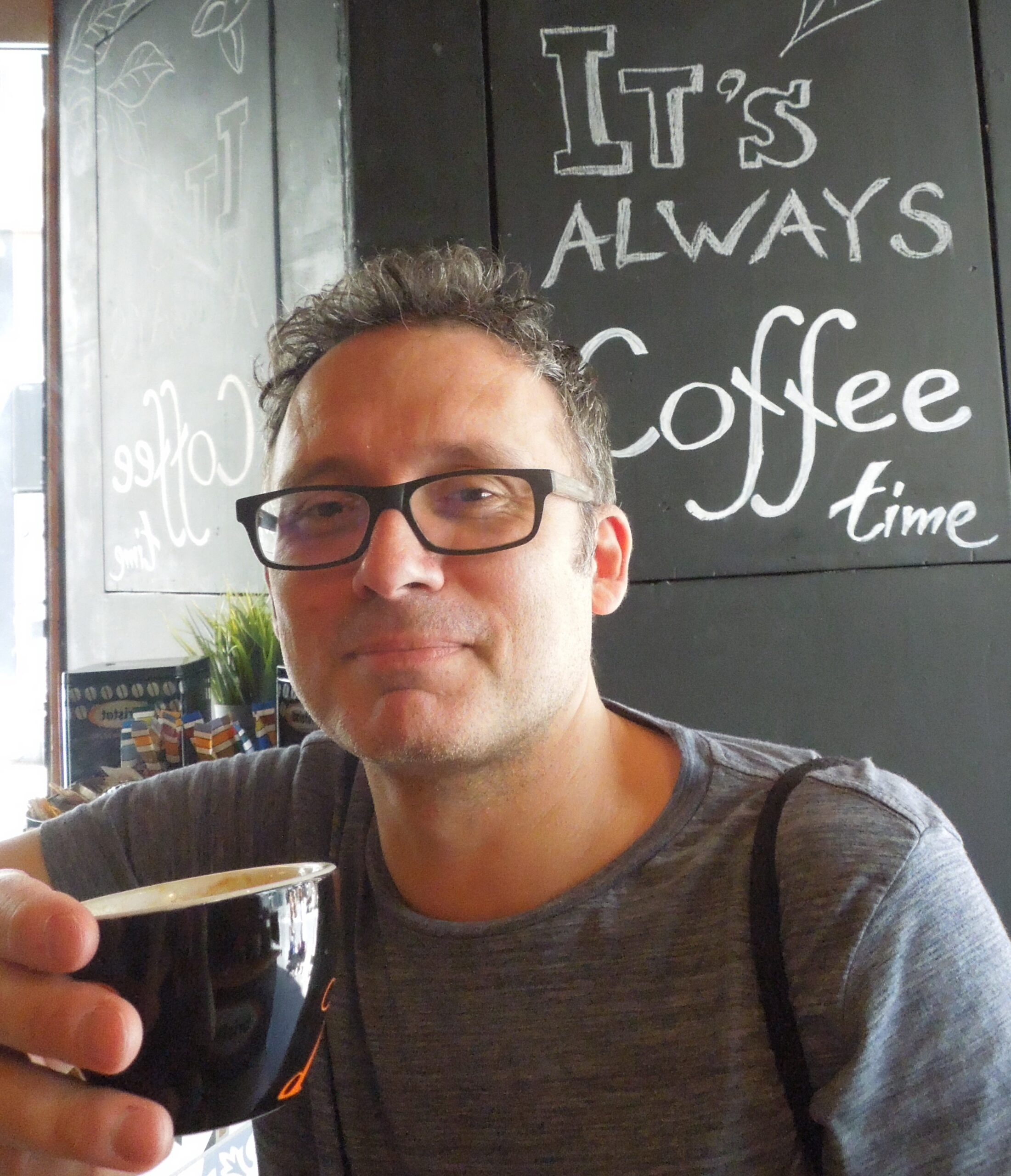
Akos Kopper
Why would I like to join EISA’s Governing Board? For years I have been working on promoting IR in the CEE, serving at CEEISA’s board for two terms. These years showed me the significance of professional associations and the role they can play in creating a vibrant scholarly community. Although CEEISA is small, its conferences were one of the best moments to realize that there is – even if yet tiny - IR community in the CEE. Joining EISA I would continue this work, just on a bigger scale with the ambition to make the European IR community to reach more beyond its classic core. While much has been done during the past decades to make EISA truly European, IR in the CEE is still a relatively young discipline and remains at the periphery. Furthermore, authoritarian tendencies in the CEE and elsewhere make networks of professional organizations crucial in maintaining contacts for academics working in stressful situations to stay connected and keep on their work despite adverse circumstances. Being part of a network provides support both psychologically, but potentially also financially, by being invited into research cooperations that could be crucial in keeping some academics afloat and survive in times when authorities encroach on their work and suffocate them either by legal or by financial means. I believe EISA’s support here could be crucial. As a member of CEEISA’s executive board among others I was acting as editor, later editor-in-chief (together with Paul Roe) of the Journal of International Relations and Development, while we have also started an initiative (with Filip Ejdus) for a CEE doctoral network, realizing that young PhDs in the region are often ‘left alone’ with their projects and one of the things that could help them immensely would be the creation of a peer community of likeminded colleagues. While Filip is the engine of the initiative now, we hope this will flourish. If elected as a member of EISA’s board, I would be happy to work on similar initiatives, while I would also like to work on making EISA’s relations more extended. (I have represented CEEISA for years in WISC, while CEEISA had wonderful joint conferences with EISA and with the ISA. I believe such joint initiatives with partner organizations offer a wonderful way to make IR scholars in various regions to open towards one another). As a scholar also working on East Asia, I would also be glad to work on extending EISA’s networks to the East, through various forms of cooperative initiatives. I am sending this application from Budapest, working at ELTE University, while at the same time I am also a researcher at ZOIS (Centre for East European and International Studies) in Berlin with a Humboldt Fellowship.
With the above in mind, I am applying to join the EISA’s executive board.
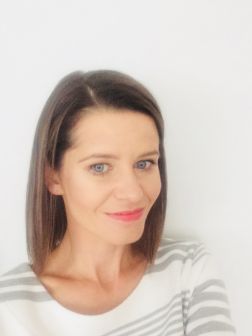
Magdalena Kozub-Karkut
In presenting my candidacy for the EISA Governing Board, I would like to stress that my membership in this organization so far has taught me how important it is to build a sense of community among Academia members. This not only helps to integrate people representing different beliefs or backgrounds but also to build a discipline that, although diverse, remains united.
Firstly, I would like to refer to my previous activities in the organization. In 2019, I co-organized EWIS in Krakow, Poland. It was an experience that taught me how to collaborate in a broad, international environment and coordinate the many activities that ultimately made up the entire event. In addition, I attended many Pan-European conventions – as a participant and discussant. What is more, I will be heading my section this year, during the Potsdam convention. Therefore, I see my activity in the EISA Governing Board as one related to the organization of smaller or larger events, such as workshops or exploratory symposia.
Secondly, I would like to stress that as someone who comes from Central and Eastern Europe and has benefited from a Mobility Fund grant, I am aware of the many constraints faced by people from poorer European countries. Nevertheless, my experience shows that the difficulties faced by researchers from CEE derive not only from a lack of funding but also from unequal access to it. Indeed, divisions do not run along national borders, but rather across them. Even in affluent countries, early career scholars might also face a lack of access to funding and need support. Furthermore, some of countries are experiencing democratic backsliding or a stronger economic crisis, which is affecting scholars’ developing opportunities, including mobility. As a member of the Governing Board, I would like to focus on ensuring the widest possible access to mobility for researchers from Europe and beyond. I know how beneficial it is to participate in international conferences and workshops, so I will make sure that this programme develops. In my view, this objective is one of EISA’s important tasks – to support those who need it.
Finally, being a member of the Governing Board will give me the opportunity to work with committed and active people focusing on International Relations. I hope that I will not only have a chance to learn something new and meaningful but also contribute to the work of the Governing Board and EISA.
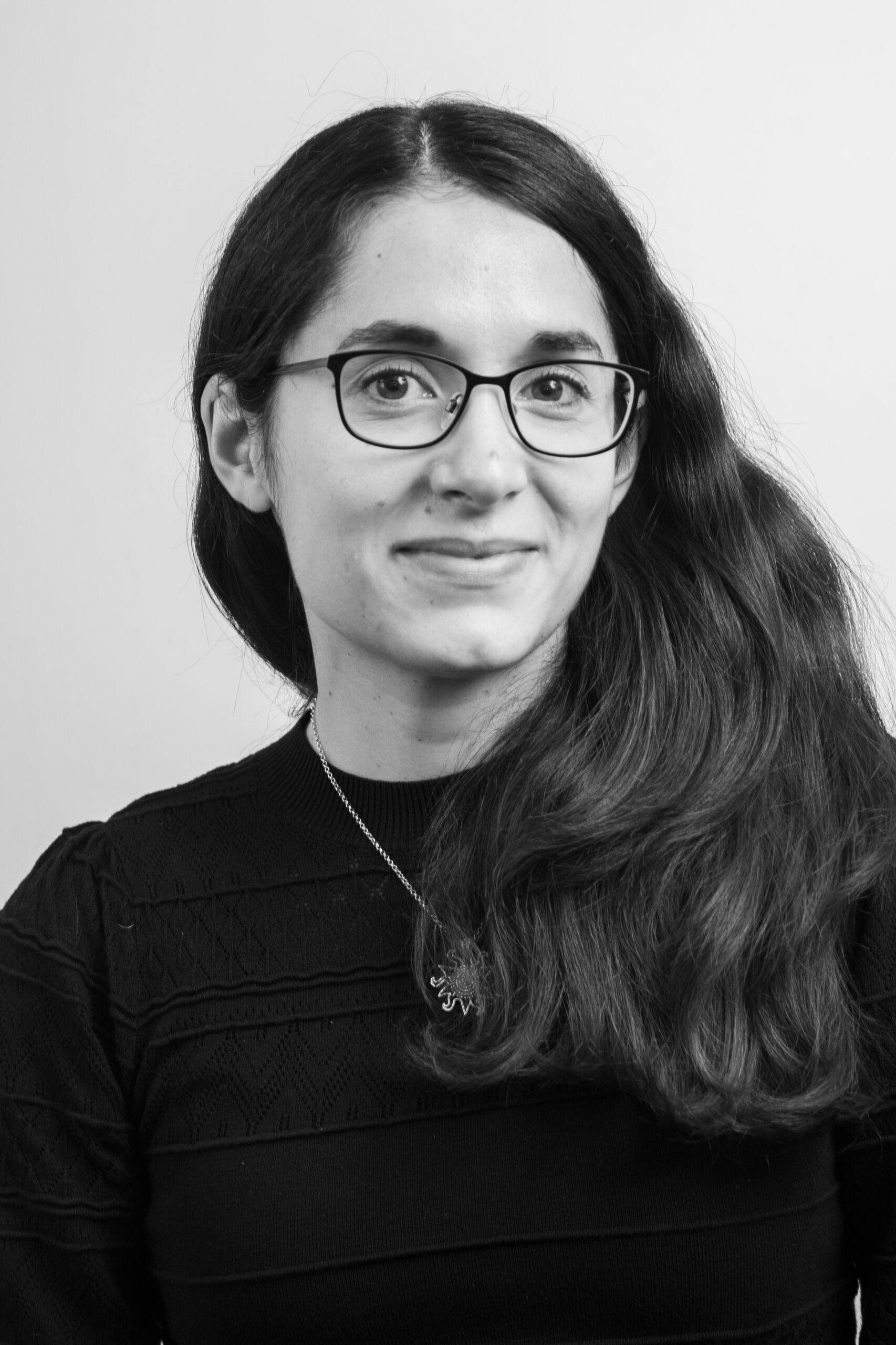
Daniela Lai
I am a Lecturer in International Relations at Royal Holloway, University of London, where I am also an active member of the Gender Institute. By running for the EISA Governing Board elections, I would like to give something back to what has always been a very supportive academic community for me. Over the years, I have participated in EWIS and PEC, organised panels and co-chaired a PEC section. EISA has provided an invaluable venue for presenting my research on violence, justice and the politics of knowledge production in IR, and for establishing professional connections. However, not all early career scholars have had the same chances. If elected to the Governing Board, I would like to work towards expanding access to these amazing opportunities offered by EISA, building on its existing work on inclusivity. To achieve this, I would support the organisation of inclusive events that build stronger links with the communities that host them. I would support initiatives for Early Career Researchers, precarious scholars, those from marginalised groups, or based in low-income countries. I would also like to explore opportunities for broadening the membership to students who might benefit from attending PEC, from presenting their work at dedicated student workshops, and from making greater use of existing EISA resources such as the EISA Podcast. I believe that my past experience within academic associations and groups has given me the necessary experience and organisational skills to undertake this role within EISA. I have gained experience advocating for a greater presence of postgraduate students at conferences and organising events to help them navigate academia. I have also worked with colleagues to promote the role of regions – such as South East Europe – that are considered to be ‘marginal’ or ‘peripheral’ in IR, as places where knowledge and theories of IR are generated. One of the challenges we have faced has been facilitating the participation of academics based in countries that are subject to punitive visa regimes. This is a problem that affects EISA events as well, and if elected I would contribute to the association’s efforts in supporting scholars who keep facing these obstacles.
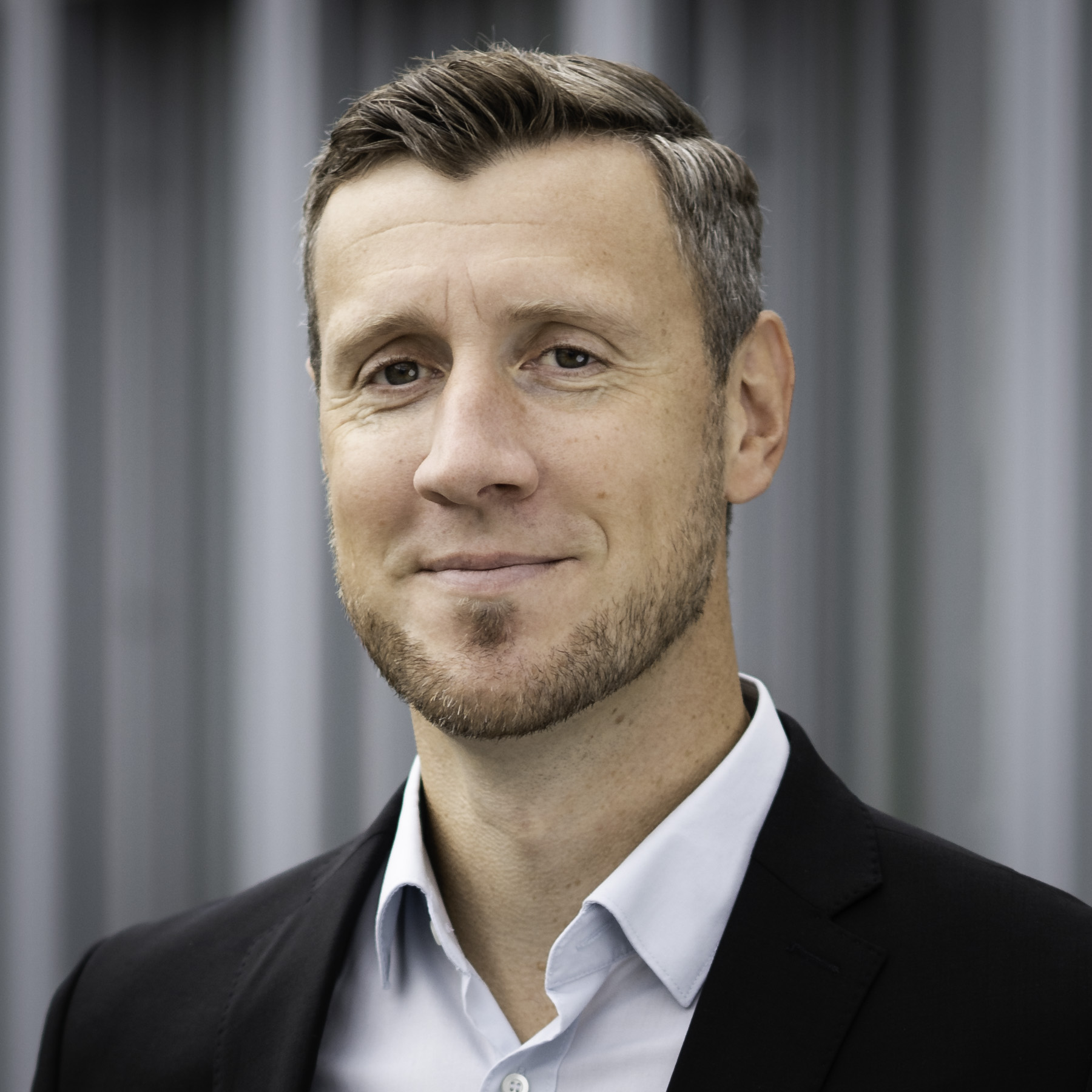
Matthias Leese
The EISA has been central to my intellectual development and professional life and I have been an active member of the EISA community for many years, including the organization of multiple EWIS workshops and different roles as Section Chair for the PEC conferences. Together with Dagmar Vorlíček, I am currently Program Chair for this year’s PEC conference in Potsdam. Going forward, I would like to not only remain involved in EISA activities, but also actively shape the association’s future and ensure its continued status as a multi-cultural and pluralistic space where ideas can be exchanged and discussed without having to conform to an orthodox appearance or style.
If elected to the Governing Board, my primary goal would be to find ways to improve funding for scholars with low or non-existent travel budgets. As a first-generation scholar, I believe it is important to ensure continued accessibility and encourage participation in EISA activities for those who might find themselves at the margin of our discipline. While EISA policy is already inclusive and fosters equal opportunities, I believe we should seek ways to lower conference fees for low-income participants, extend the provision of travel bursaries, and also build on the promising start of transition grants that help junior scholars bridge the period between the completion of a PhD project and the start of their next position.
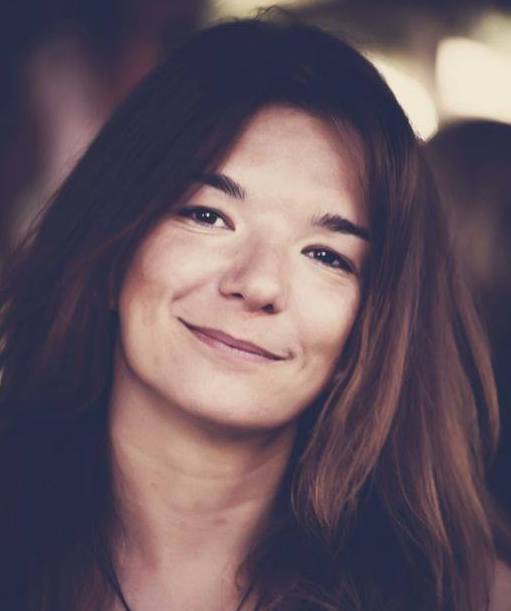
Revecca Pedi
I decided to stand as a candidate for the next EISA Governing Board elections, because I feel that I want to give something back to the EISA community and I am prepared to devote time and effort to do so. I have been an EISA member and participant in EISA events since 2017. I’ve been the co-organizer of both EWIS 2021 and EWIS 2022 as well as co-convenor of the EISA PEC standing section on Small States in World Politics since 2020*.* EISA has been beneficial for my professional development and my engagement with the organization of EISA’s events has proven really rewarding. During the EISA events I’ve had the opportunity to meet colleagues whose work I admired and cooperate with them, receive invaluable feedback for my work, build a network of colleagues with similar research interests, make friends, and find an open and supportive community of scholars to discuss professional development. I believe that EISA’s strongest asset is its ability to inspire and unite people that come from different backgrounds, academic institutions, countries, disciplines, and theoretical perspectives, and that are at different stages in their careers. I’ve had the chance to experience it firsthand, at several stages, during the EWIS organization. EISA has become a point of reference, not only in our academic diaries because of its events but also for the values and principles it promotes and the sense of community it develops.
I believe that EISA can expand its activities to include engagement with policymaking communities, in order to contribute to informed policymaking and raise public and political awareness regarding crucial challenges; it has an important role to play in advancing understanding and critical perspectives of the complex political and social dynamics that shape our world, beyond academia. If elected, I will be committed to helping the association achieve this goal, by supporting initiatives that will bring together policymakers and academics to bridge the gap and cooperate to address pressing challenges. In addition, I’m keen on undertaking initiatives supporting teaching and learning. Although teaching and learning are important parts of our daily work and we devote much time and effort to them, we rarely discuss them in international fora or get enough training from our institutions. Given the disruptive changes that technology brings to higher education, I believe that EISA can establish channels of communication focusing on teaching and learning practices, (e.g. a teaching and learning podcast series) or the development of educational resources, (e.g. course outlines repository). I will be committed to supporting and promoting EISA’s events, fostering collaboration and dialogue among scholars from diverse backgrounds and fields of study, and encouraging underrepresented groups of people to participate in the Association and its activities.
Having successfully cooperated with EISA Board members for the organization of two events, I’m totally aware of the Association’s high standards of professionalism, integrity, and creativity as well as of the amount of time and effort I need to devote to make a valuable contribution to the EISA community.
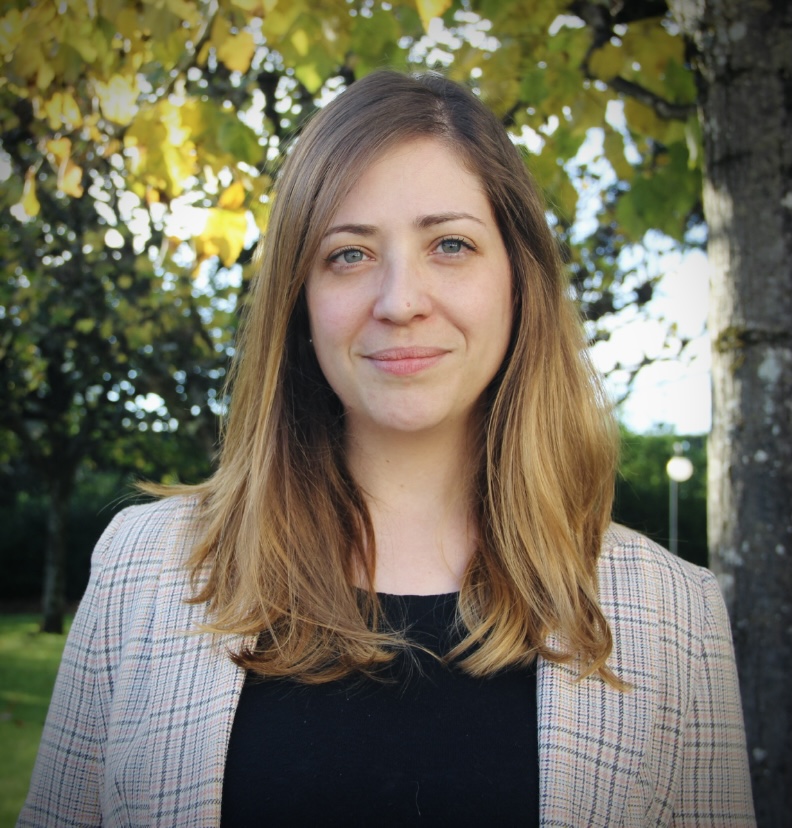
Joana Ricarte
I am a global South scholar (Brazil) permanently based in Portugal. I have participated in several EISA events in the past 7 years (4th EWIS, ECRW and 11th PEC in 2017; 13th PEC in 2019; 14th PEC in 2021; and 15th PEC in 2022) and am an enthusiastic listener of the Voices Podcast. I was section chair of S16 in PEC19 (“Exploring Reconciliation in/beyond IR”) and in PEC22 (“Reconsidering the ‘Local’ Beyond Binary Thought”). I am currently section chair of the Standing Section ST22 “Reimagining Peace Studies”.
As a Governing Board member, I will contribute to strengthening the EISA’s relationship with its members beyond the annual in-person events. This entails engaging with existing portfolios such as Early Career Development and Online Events. However, this can and should be connected with the Membership cluster. At the EISA, there is a predominance of one-year-only memberships largely connected with the main conferences’ calendar. The question of how to retain members and push the Association’s boundaries beyond the events seems to me a pressing issue. There is already an ongoing effort to bring the EISA closer to its members, but this can be reinforced and headed towards active participation rather than just the recipient side. I believe that the EISA can constitute itself as a strong network of researchers which can endure and be active in-between conferences, creating a space to strengthen IR studies and related fields, bringing together scholars, practitioners, projects, and institutions. This can be done by creating a network building portfolio, which I intend to assume and to coordinate in synergy with previously existing portfolios.
Strengthening the EISA’s networking potential entails the organization of periodic online events to democratize access and participation, diminishing the financial constraints and the environmental impact connected with travels. This will increase the diversity of members’ profiles and geographic provenance, de-centering the Association by creating a living space to bring together scholars based in Europe and beyond, contributing to enhance the possibilities of participation for Global South scholars and pushing the boundaries of the EISA from Europe’s center to other countries.
To create a more dynamic Association that converses with its members in-between conferences, I propose to:
- Create and coordinate the Network Building Portfolio;
- Organize an annual Online Intermediate General Assembly to increase the democratic capacity of the Association beyond the Pan-European Conferences;
- Promote and support the organization of online seminars, workshops for career development, thematic standing working groups, and collaborative projects’ networks, all designed in a tailor-made fashion privileging the members’ needs and aims connected with the Association and creating opportunities for implementing activities proposed by its members through an open call for online events.
I am positive that these measures would create a new rationale for membership adhesions, building a long-lasting resilience capacity for the EISA and bringing the Association closer to its members. I see the EISA as a creative and dynamic space which can be more active in-between conferences by promoting creative opportunities for other types of permanent engagement between members.
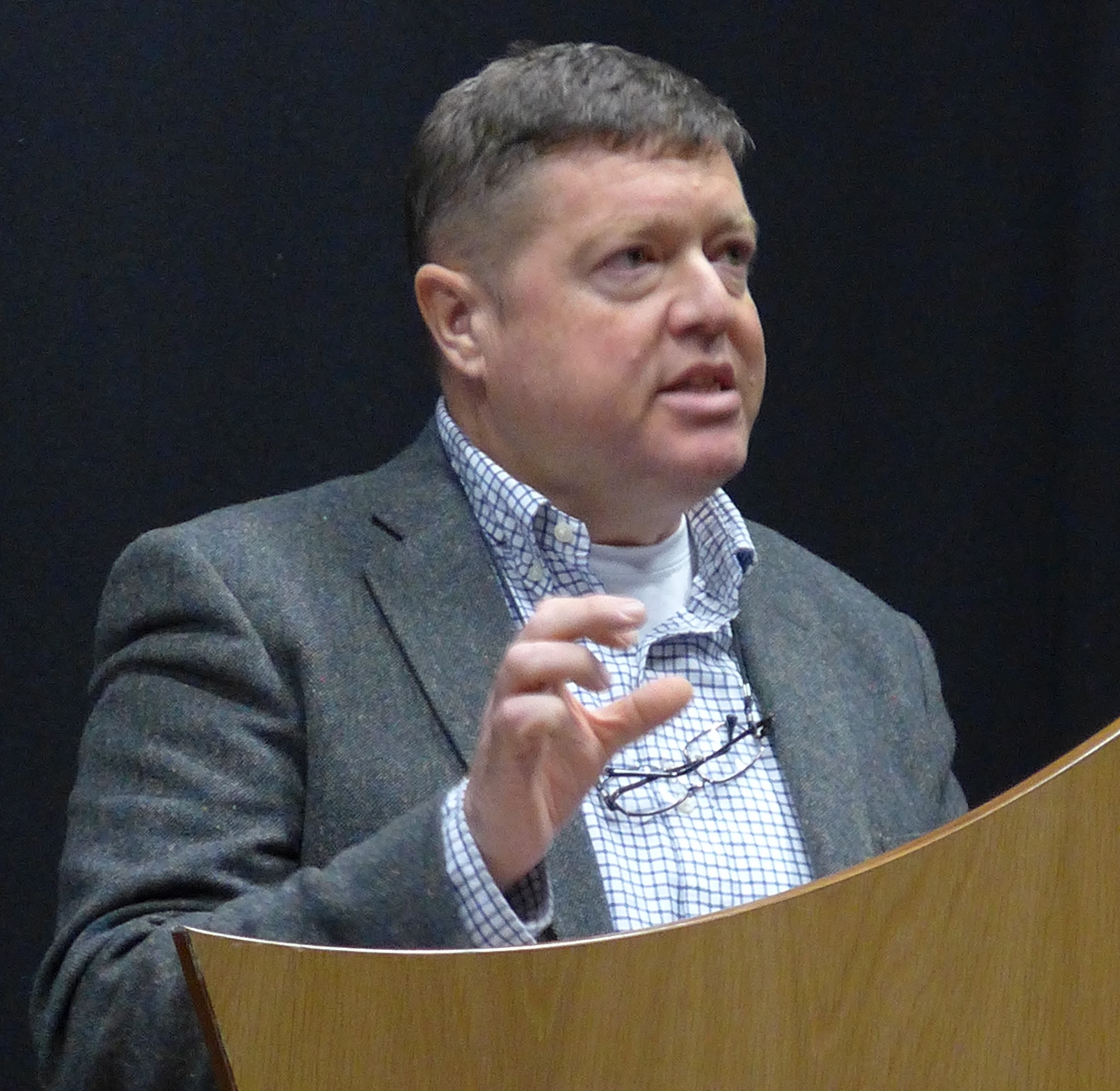
Ben Tonra
I am deeply honoured to have been shortlisted for nomination to the EISA Governing Board and to be placing myself before you for your support.
Developing our scholarly community is an essential prerequisite of a successful discipline but one which is not appropriately recognised in rankings or by hiring committees or by promotional boards. It is therefore incumbent on more senior scholars to make their contribution to strengthen the disciplinary infrastructures on which we all rely. The EISA Governing Board has a very particular obligation in that regard, representing as it does Europe’s premier professional association in the discipline of International Relations.
I have been teaching, researching and publishing at the intersection between International Relations and European Studies for more than 25 years. This has included senior leadership roles in my School, at my university, at several research institutes and within collaborative and inter-institutional research and teaching projects at home and overseas. Based on this, I believe that I have the experience to contribute substantively to the development of EISA as a strong, open and efficient institution as well as a truly diverse and collaborative professional space. I am old enough to recall the very first pan-European conferences and the struggles made by so many to successfully establish EISA. As a longstanding member and participant in EISA activities at all levels – up to co-directing conference sections – I think I have the capacity and the knowledge of the organisation necessary to contribute to its further success.
There are three specific areas to which I would especially like to contribute as a member of the Governing Board – were I to be honoured by election to it:
- First, coming from Ireland, I am especially conscious of the challenges faced by scholars based in smaller and geographically peripheral jurisdictions. One key focus for me would therefore be to explore ways to better engage colleagues from across the entire continent and to establish stronger links with colleagues outside the metropolitan cores – linguistic and geographic – of our established discipline
- Second, I have a long track record in supporting the professional development of early career scholars. Another priority for me would be the further development of structures and initiatives designed to assist these colleagues as they face an ever increasing escalation of expectations in their professional teaching and research profiles for appointment and promotion.
- Finally – as suggested above – I am keen to deepen links between IR and area studies specialists based in Europe. We have much to learn from one another and – together – much to contribute to both scholarly discourse and public policy engagement.
To all of these ends I would be most grateful for your support and I would be delighted to discuss bilaterally any issues or concerns which you might wish me to raise as a member of the Governing Board.
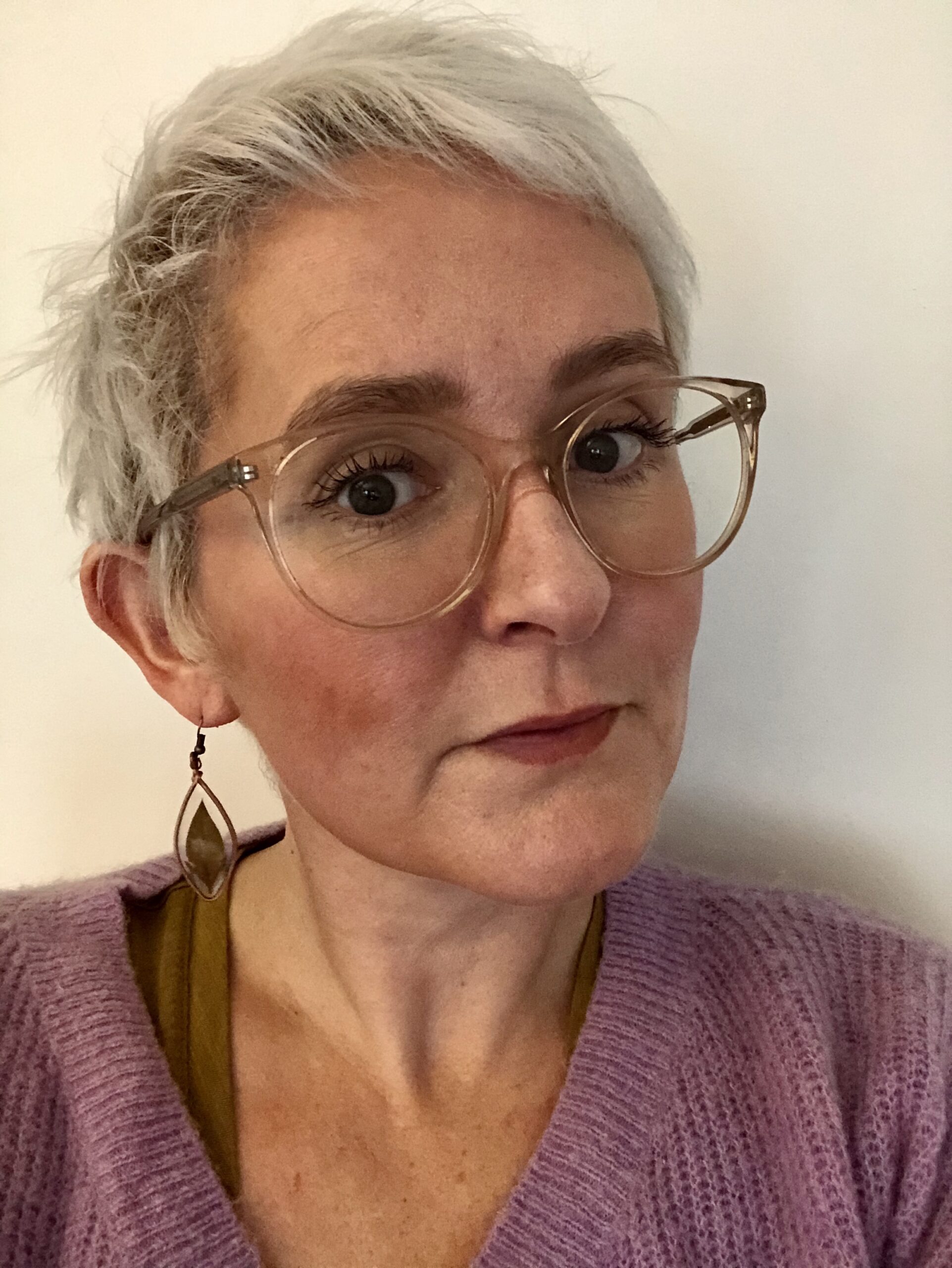
Polly Pallister-Wilkins
Kia ora fellow EISA members,
Some of you will know me, some of you will not. My name is Polly Pallister-Wilkins, and I am an associate professor in the Department of Politics at the University of Amsterdam, where I have worked for nearly eleven years now since leaving SOAS, University of London. My research straddles International Political Sociology, critical security studies, and political geography and has focused on humanitarian responses to border violence and mobility injustice, and more recently on racism in humanitarian norms and practice and the calls for, and possibilities of, decolonising humanitarianism.
I would be honoured to join the EISA Governing Goard for reasons that I will outline below. My desire to join the Governing Board comes from a great admiration for the work the EISA does in making space for our community. The EISA has enabled me to engage with so many folks as a participant and organiser. Over the years I have organised workshops in Tübingen and Cardiff and conference sections in Prague and online during the Covid years.
These events have always been more than simply spaces to share our academic labours but have also fostered community in a caring and open way. They are about the full embodied, social life of what it means to be engaged in this sometimes bewildering and at other times absurd thing we call academia. These events are made possible by the hard and often invisible work of excellent colleagues who have worked tirelessly to make the EISA what it has become, and I feel it is time I stopped enjoying all the fun and food, and properly pitched in.
My involvement in the Early Career Development Group’s IR Café at last year’s PEC in Athens has led me to want to be more substantively involved in supporting ECR colleagues as they navigate the tricky waters of academic life under increasingly precarious conditions. I strongly believe it is vital that those with secure positions who have benefitted over the years from the wisdom, abundant generosity, and joy of others, continue to work on fostering the same going forward.
With this in mind, I want to continue the hard work that has aimed at diversifying our discipline and making it more inclusive. As someone whose own identity as a scholar is interdisciplinary, I would work at continuing to make the EISA a pluriversal association where marginalised conversations are welcomed, given space, and celebrated. In addition, I would work at supporting, both intellectually and materially, marginalised scholars who have not been afforded the privileges I have enjoyed. And finally, as a Governing Board member I would be committed to continuing the vital work of supporting and standing in solidarity with colleagues who have faced attacks on their academic freedom, because we are always stronger together and academic life does not have to be a lone(ly) pursuit.
Many thanks for reading, Polly
